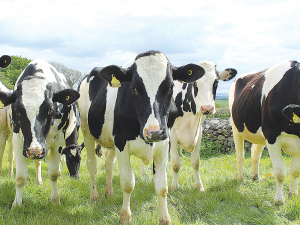Green no more?
OPINION: Your old mate has long dismissed the Greens as wooden bicycle enthusiasts with their heads in the clouds, but it looks like the ‘new Greens’ may actually be hard-nosed pragmatists when it comes to following voters.
 The methane narrative is an ideal tool to make natural, nutritious food unaffordable and unavailable to ordinary people.
The methane narrative is an ideal tool to make natural, nutritious food unaffordable and unavailable to ordinary people.
OPINION: We are endlessly told that livestock are responsible for half of New Zealand's total emissions.
Despite research showing the warming impact of livestock methane is so small it cannot be measured; the widespread perception remains that our livestock are dangerously warming the planet.
So where does this belief come from?
Ask our industry leaders or processors how much warming our livestock cause, and they’ll often quietly admit: “not much.” Press them further - Then why do we need to act - and the reply is always the same: trade pressures or customer expectations, usually meaning supermarket buyers seeking to meet their Scope 3 emissions targets. Ask why they don’t push back, and the excuses roll in: “It’s too hard” or “It would cost too much.”
One of these technologies received a funding boost back in May. It involves daily feeding— completely impractical for New Zealand’s free-trange, grass-fed systems. In other words, it would hand our competitors an advantage based on solving a non-problem. A monthly delivery version is in development, which would mean wrestling large cows 12 times a year. Are any farmers going to buy into this nightmare?
Even if they manage a 6-month version, each 30-month steer would need four doses, its mother two. At $20 a capsule— an estimate not denied by officials—that’s $120 per steer, before on farm costs. They claim it might improve productivity by 5%. A 300 kg steer would need to fetch $8/kg just to cover the capsule cost, never mind everything else. The only guaranteed result? More food inflation, already a growing crisis.
The question no one has answered is this: how can we use these synthetic interventions without compromising the integrity of our worldleading, natural, grassfed product? At least one processor won’t accept cattle for a premium brand if they’ve grazed on oat crops that have begun to head—because that counts as grain-fed. So how will consumers respond to chemically dosed animals?
We already know. Look at Europe’s backlash against Bovaer. Consumers aren’t demanding methane cuts, despite what the hysterical media say. So where are these ‘customer demands’ really coming from?
The answer? The global elite.
Let’s step back. To bring in a One World Government, you need to control three things: money, people, and food. The money supply is already in global hands. The COVID-era showed just how easily people can be controlled. That leaves the food chain.
This methane narrative is an ideal tool to make natural, nutritious food unaffordable and unavailable to ordinary people.
There is no science in this methane reduction campaign. It’s 100% politics, —part of a long-term agenda to consolidate global value.
If you value your land, your freedom and your future, then you must stand up to our industry organisations, our processors and banks and demand they stop giving into political correctness while our industry, our nation and the farming communities that underpin them slowly die.
Neil Henderson is a founding member of Methane Science Accord.
The Meat Industry Association of New Zealand (MIA) today announced that Chief Executive Officer Sirma Karapeeva has resigned from the role.
The winners of the 2026 Hawke’s Bay/Wairarapa Dairy Industry Awards were announced at the annual awards dinner held at Copthorne Solway Park in Masterton on Thursday evening.
Environment Southland is welcoming this week’s decision by the Environmental Protection Authority (EPA) to approve the release of Blaptea elguetai, a leaf‑feeding beetle that will help control the highly invasive Chilean flame creeper.
This March, the potato industry is proudly celebrating International Women’s Day on 8 March alongside the International Year of the Woman Farmer, recognising the vital role women play across every part of the sector — from paddocks and packhouses to research, leadership, and innovation.
Fruit trader Seeka posted a record profit and returns to shareholders in 2025.
Recent weather events in the Bay of Plenty, Gisborne/Tairawhiti, and Canterbury have been declared a medium-scale adverse event.
OPINION: Staying with politics, with less than nine months to go before the general elections, there’s confusion in the Labour…
OPINION: Winston Peters' tirade against the free trade deal stitched with India may not be all political posturing by the…